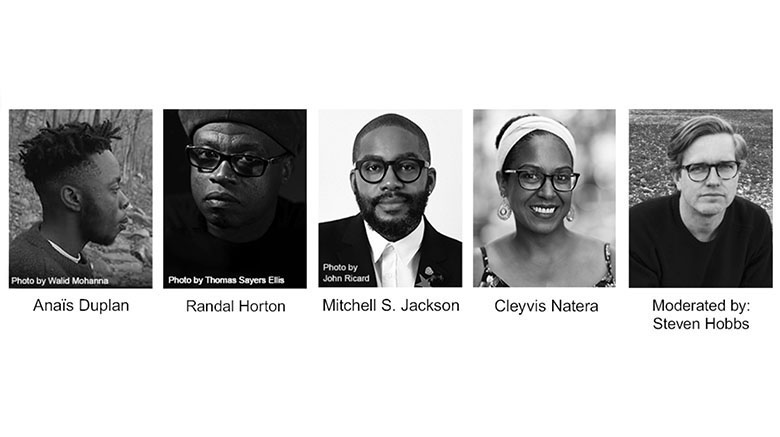Racial justice was at the forefront of last week’s virtual panel discussion, presented by faculty members of The Writer’s Foundry at SJC Brooklyn.
The writers read excerpts from their novels and discussed racial justice with moderator Steven Hobbs — a fellow Writer’s Foundry professor — and fielded questions from the approximately 50 people in attendance.
Titled “Writing and Resistance: How to Be a Literary Citizen,” the virtual event featured Writer’s Foundry lecturers Anais Duplan, author of “Blackspace: On the Poetics of An Afrofuture”; Cleyvis Natera, author of the forthcoming “Neruda on the Park”; Randall Horton, author of the forthcoming collection of poems, “289-128”; and Mitchell S. Jackson, author of “Survival Math.”
“I would like to thank the president of St. Joseph’s College, Dr. Donald Boomgaarden, for not only funding this event and making it possible, but reaching out and encouraging me to bring these authors together,” Writer’s Foundry Director Lee Clay Johnson said during the event. “This is a reading and conversation that I have been looking forward to for a long time.”
Writing as Resistance
The first question Hobbs asked the group of writers and lecturers paid homage to the title of the event. “How do you see writing as a resistance?”
Duplan said he uses writing as a resistance to talk about difficult topics in his work.
“The one thing I like about the work that I like to spend time with is when it’s in an ethical, open space,” he said. “It has ideas, it has perspective, it has a statement. But it’s human, and it’s polyvalent, and it’s fraught in certain ways — just enough so you can touch it. I think that’s important.”
Duplan’s lyrical essay collection, touching on such topics of race and gender identity, is another example of using this writing tactic to discuss tough issues.
It’s also a topic fellow writer Natera has been exploring for decades.
“For 30 years, I have been in conversations that were largely dominated by this idea that those of us who are concerned with politics, who are explicit about the inequalities that exist in society, who bear witness, are somehow compromising our art,” Natera said. “To me, I think that’s really problematic because then we are put in a position where we have to justify the work.”
Natera often turns to a quote from a conversation between the late novelist James Baldwin and Nikki Giovanni, an American poet who was part of the Black Arts movement of the late 1960s.
“James Baldwin said, ‘Because the responsibility of the writer is to excavate, the act of writing, the intention of it, the root of it is liberation.’ I go to this (quote) very often — when I need to be fired up,” Natera said. “I think about that a lot — the idea that, as writers, we are liberating language because we already know the language is problematic.”
Inspiring the Next Generation of Writers
The panel of authors had advice for new students joining the Writer’s Foundry: attend writer’s workshops fully prepared, put in the work and try not to compare yourselves to others.
“When you come in you have two years, but the time goes just like that,” said Jackson, snapping his fingers for effect. “The advice I got from a good friend when I was getting ready to go into my program was, ‘Go into a workshop ready, think about what it is you want your thesis to be, and actively work on that every workshop, every moment and every chance you get.’
“That’s some of the advice I’ve received, and I held it to heart,” Jackson continued. “And I think it served me well.”

